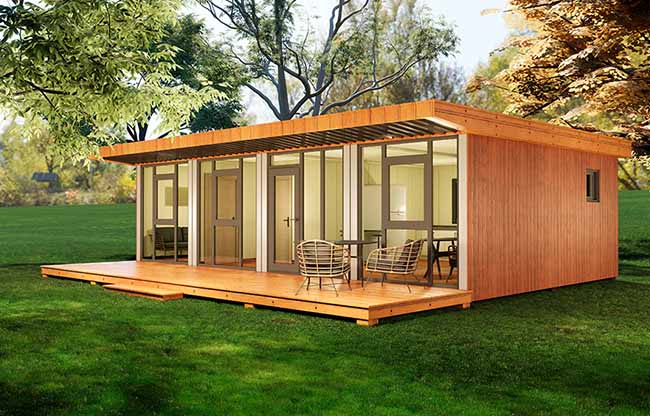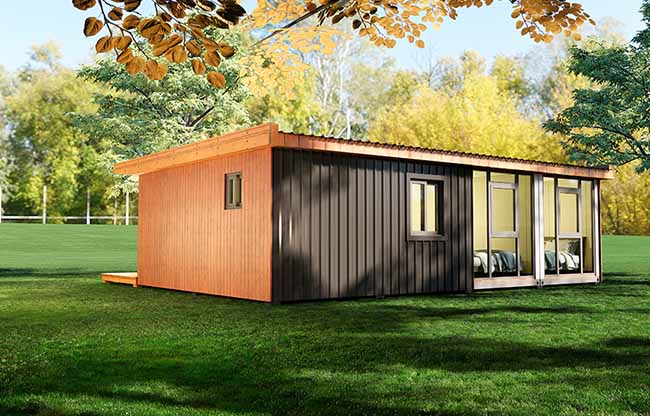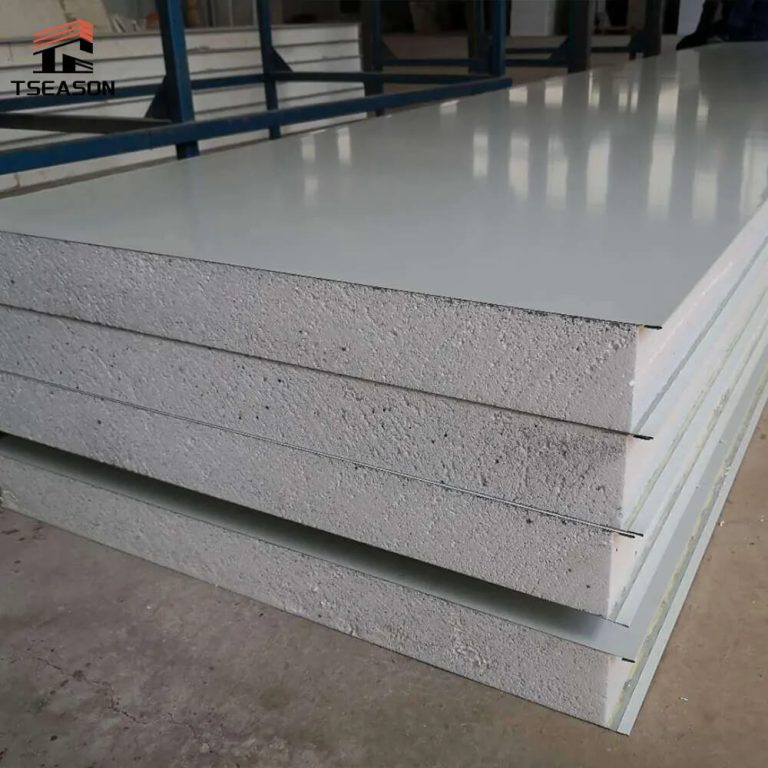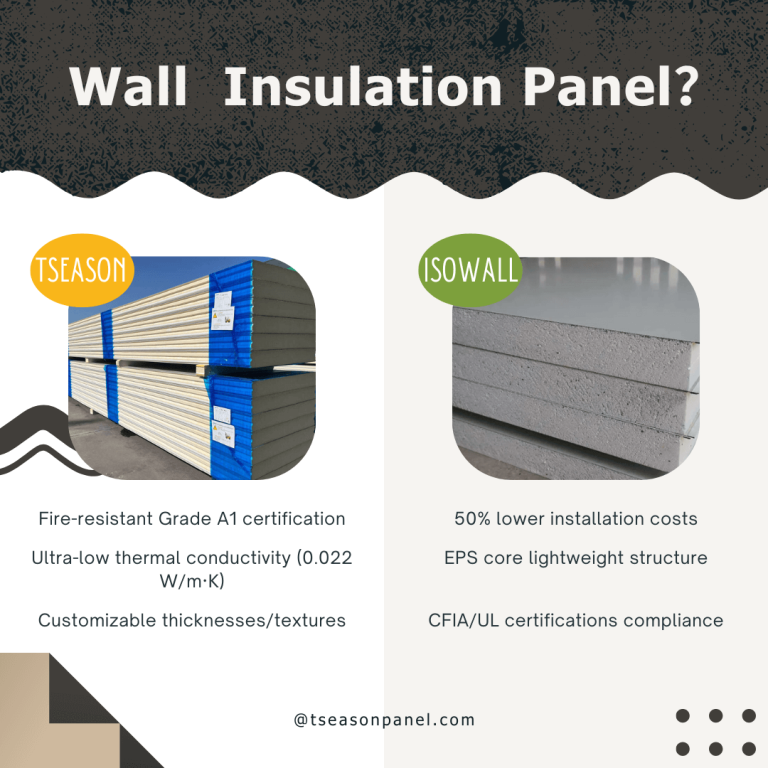What Is a Container House: Unlocking the Door to Innovative Living
Introduction
Container houses, once considered an unconventional approach to housing, have become a symbol of innovation in modern architecture. As cities evolve and living spaces transform, the concept of repurposing shipping containers into homes gains momentum. Let's dive into the intriguing world of container houses, exploring their history, advantages, challenges, and the exciting potential they hold for the future.


History of Container Houses
Origins of Container Homes
The roots of container housing can be traced back to the mid-20th century, with the rise of shipping containers for transporting goods. The ingenious idea of repurposing these sturdy containers into living spaces began as a solution to the surplus of unused containers.
Evolution in Architectural Trends
Over time, architects and designers embraced the challenge of transforming these industrial containers into habitable spaces. This evolution marked a shift in architectural trends, with container houses becoming a symbol of sustainability, affordability, and creativity.
Advantages of Container Houses
Cost-effectiveness
One of the primary advantages of container houses lies in their cost-effectiveness. Compared to traditional construction, repurposing shipping containers can significantly reduce building costs, making homeownership more accessible.
Sustainability and Eco-friendliness
Container houses contribute to sustainable living by repurposing existing materials. Recycling shipping containers helps reduce environmental impact, offering an eco-friendly alternative in the world of construction.
Quick Construction Time
Container houses are known for their swift construction timelines. The modular nature of containers allows for faster assembly, making them an appealing option for those seeking a quicker transition to their new homes.
Customization Options
Architectural Flexibility
Contrary to popular belief, container houses offer a high degree of architectural flexibility. Designers can manipulate containers to create unique and aesthetically pleasing structures that meet the preferences of homeowners.
Personalized Designs and Layouts
Container homes provide homeowners with the opportunity to create personalized living spaces. The adaptability of containers allows for diverse layouts and designs, fostering individuality and creative expression.
Structural Considerations
Stability and Durability
A common concern with container houses is their stability and durability. However, when properly reinforced, these structures can withstand various environmental conditions, proving to be as robust as traditional homes.
Insulation and Weatherproofing
Insulating container homes is crucial to maintaining comfortable living conditions. Advances in insulation materials have addressed this challenge, ensuring that container houses remain cozy in diverse climates.
Popularity Among Homeowners
Testimonials and Success Stories
The growing popularity of container houses is evident in numerous success stories from homeowners who have embraced this unconventional living style. Real-life testimonials highlight the unique appeal and practicality of container living.
The Appeal of Unique Living Spaces
Container houses attract individuals seeking distinctive living spaces. The appeal lies in the opportunity to break away from conventional housing norms, fostering a sense of individuality and adventure.
Challenges and Misconceptions
Addressing Common Concerns
While container houses have gained popularity, they are not without challenges. Addressing common concerns such as structural integrity, insulation, and zoning regulations is crucial to dispelling misconceptions.
Debunking Myths About Container Houses
Misconceptions surrounding container houses often deter potential homeowners. By debunking myths and providing accurate information, individuals can make informed decisions about whether container living is right for them.
Regulations and Zoning
Legal Considerations for Container Homes
Before embarking on a container house project, it's essential to navigate the legal landscape. Understanding local building codes, zoning laws, and obtaining the necessary permits are vital steps in ensuring a smooth construction process.
Zoning Laws and Building Codes
Zoning laws may vary, affecting where and how container houses can be constructed. Familiarizing oneself with local building codes ensures compliance and prevents legal complications down the road.
Notable Container House Projects
Showcase of Innovative Container Structures
Across the globe, architects have undertaken groundbreaking container house projects. These showcase the limitless possibilities of container architecture, from minimalist designs to extravagant, multi-container residences.
Iconic Container House Examples
From compact urban dwellings to sprawling rural estates, container houses have left an indelible mark on the architectural landscape. Iconic examples serve as inspiration for those contemplating container living.
Future Trends in Container Architecture
Advancements in Design and Technology
As container housing gains traction, designers continue to explore new possibilities. Advancements in design and technology promise even more innovative and sustainable container housing solutions in the future.
The Potential for Mainstream Acceptance
Container houses are poised to move from the fringes of architecture to mainstream acceptance. As awareness grows and misconceptions are dispelled, more individuals may embrace container living as a viable and exciting option.
DIY Container Homes
Tips for Individuals Considering DIY Projects
For the adventurous at heart, building a container home as a DIY project is a tempting prospect. Tips and insights into the process can guide individuals through the challenges and rewards of constructing their container abode.
Challenges and Rewards of Building Your Own Container Home
Embarking on a DIY container home project comes with its own set of challenges and rewards. Understanding the potential hurdles and the satisfaction of creating a unique living space adds to the allure of the DIY approach.
FAQs (Frequently Asked Questions)
1. Are container houses legal in all areas?
Container house legality varies by location. It's crucial to research local zoning laws and building codes before starting a project.
2. Do container houses require special insulation?
Yes, proper insulation is essential to regulate temperature in container homes. Advances in insulation materials have addressed this requirement.
3. Can I build my own container home?
Building a DIY container home is possible. However, it comes with challenges. Research thoroughly and consider professional advice.
4. What is the average cost of a container house?
Costs vary based on factors like size, customization, and location. On average, container homes can be more cost-effective than traditional houses.
5.How long does it take to build a container house?
The construction time for a container house is typically shorter than for traditional homes, thanks to the modular nature of containers.





